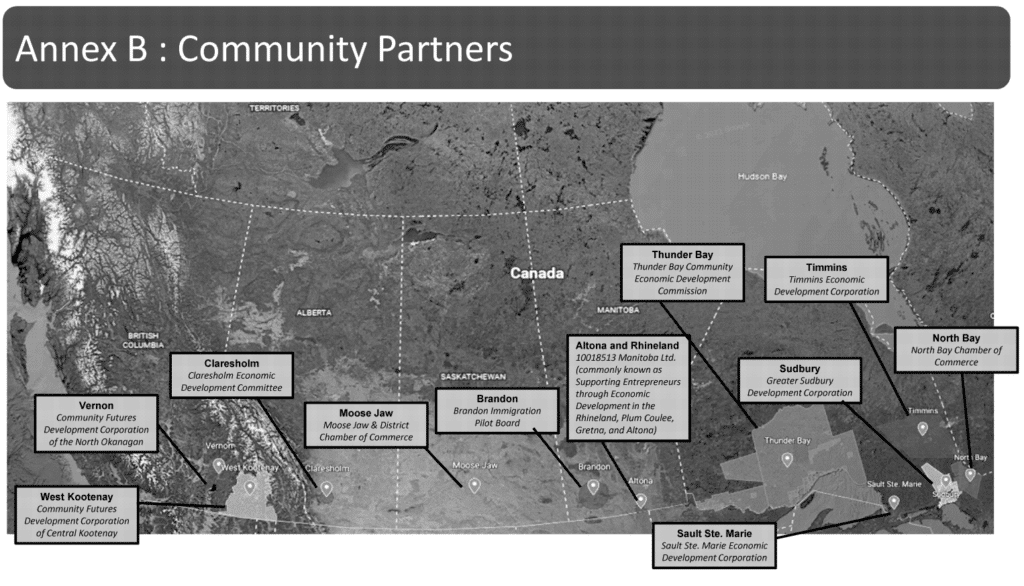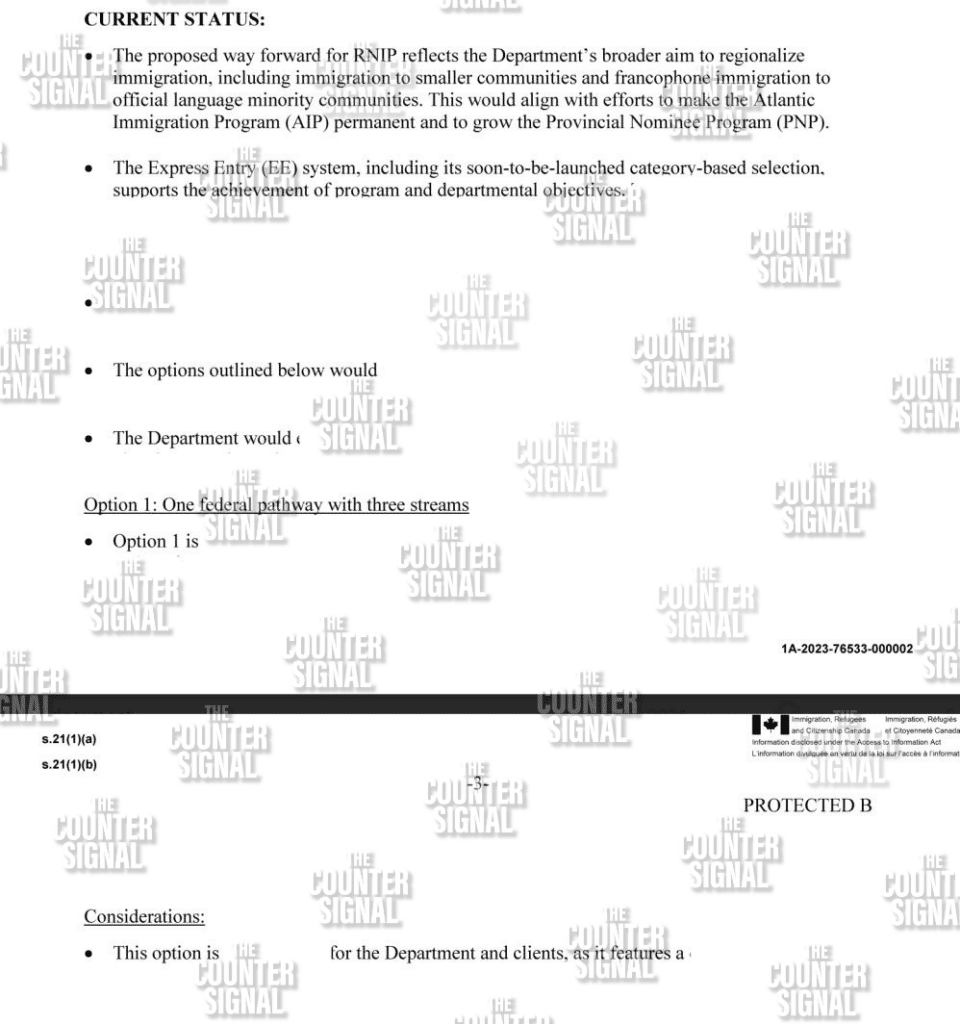An access to information request reveals a memo sent to Immigration Minister Sean Fraser, detailing the outcomes of the five-year pilot project titled the Rural and Northern Immigration Pilot (RNIP).
https://thecountersignal.com/liberals-plot-to-redistribute-immigrants-into-small-town-canada-documents-show/?utm_source=The+Counter+Signal&utm_campaign=51271b5222-EMAIL_CAMPAIGN_2024_08_14_09_40&utm_medium=email&utm_term=0_-51271b5222-%5BLIST_EMAIL_ID%5D
Launched in 2019, RNIP consisted mostly of newcomers already in Canada moving to rural areas, primarily to help them find jobs and support economic development.
The eleven cities were Vernon (BC), West Kootenay (BC), Claresholm (AB), Moose Jaw (SK), Brandon (MB), Altona (MB), Thunder Bay (ON), Sault St. Marie (ON), Sudbury (ON), Timmins (ON), and North Bay (ON).

The memo, sent to Minister Fraser, asks for his input on what to do after August 2024 once the pilot project comes to an end.
“The proposed way forward for RNIP reflects the Department’s broader aim to regionalize immigration, including immigration to smaller communities,” it reads. “This would align with efforts to make the Atlantic Immigration Program (AIP) permanent and to grow the Provincial Nominee Program (PNP).”
Heavily redacted
A great deal of the memo is redacted, making most of the feedback on the program limited. For example, one section reads, “While RNIP has succeeded in meeting its objectives, other communities continue to be underserved by immigration (including French-speaking minority communities). Additionally, other priorities have emerged, and [REDACTED].”
The government also redacted the number of newcomers sent to the eleven cities, meaning they find the data too sensitive for the public.

ABOVE NOT AN ERROR... AS REPORTED
The memo reports that the newcomers overwhelmingly appreciated the program despite the fact that four out of five newcomers didn’t bother to respond to the government’s request for follow up.
Of the one in five who did respond, 87% said they planned to stay in their RNIP community.
The memo further indicates concern that some provinces won’t like their plan.
“The announcement would be supported by a full suite of products including a news release, key messages, Q&As, social media post, and web updates, taking into account the potential for negative reactions from provinces and territories. It is highly recommended that provinces and territories be advised prior to announcement,” it states.
“Communities have reacted positively to annual allocations”
The report acknowledges that it’s too early to fully understand the long-term economic impact of the program, but it states that in the short to medium term, it has filled ‘critical labour market needs.'”
“Accommodation and Food Services is the top sector with 28% of applicants, followed by Health Care and Social Assistance with 20% of applicants,” it reads.
The report also touches on the low birth rate in these smaller, mostly conservative towns, and their “aging populations.” It also acknowledges the pilot program was “resource intensive and challenging to expand to capture more communities.”
As per the Immigration Minister’s mandate, the Liberals intend to “Ensure that immigration better supports small- and medium-size communities that require additional immigrants to enhance their economic growth and social vibrancy.”
“This will include expanding the Rural and Northern Immigration Pilot, moving forward on the Municipal Nominee Program……..” as well as “continue to implement an ambitious national strategy to support Francophone immigration across the country.”

